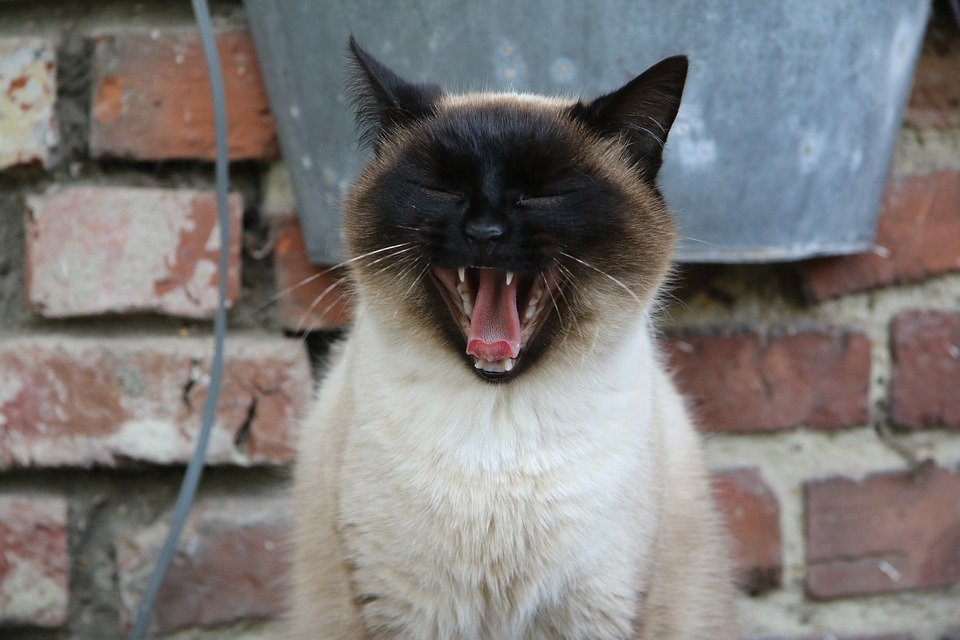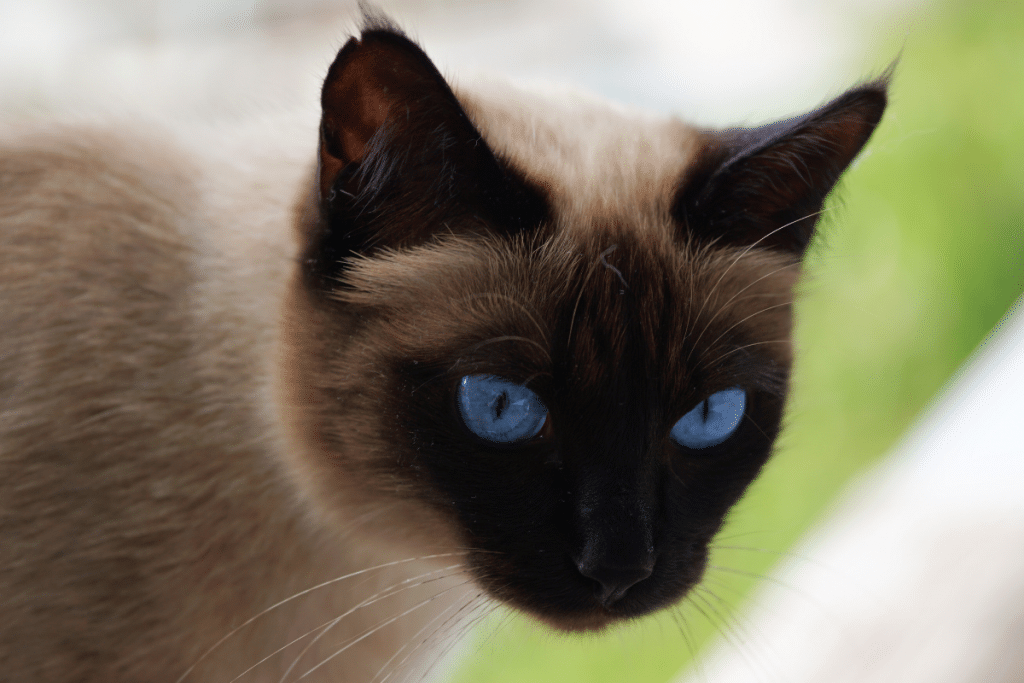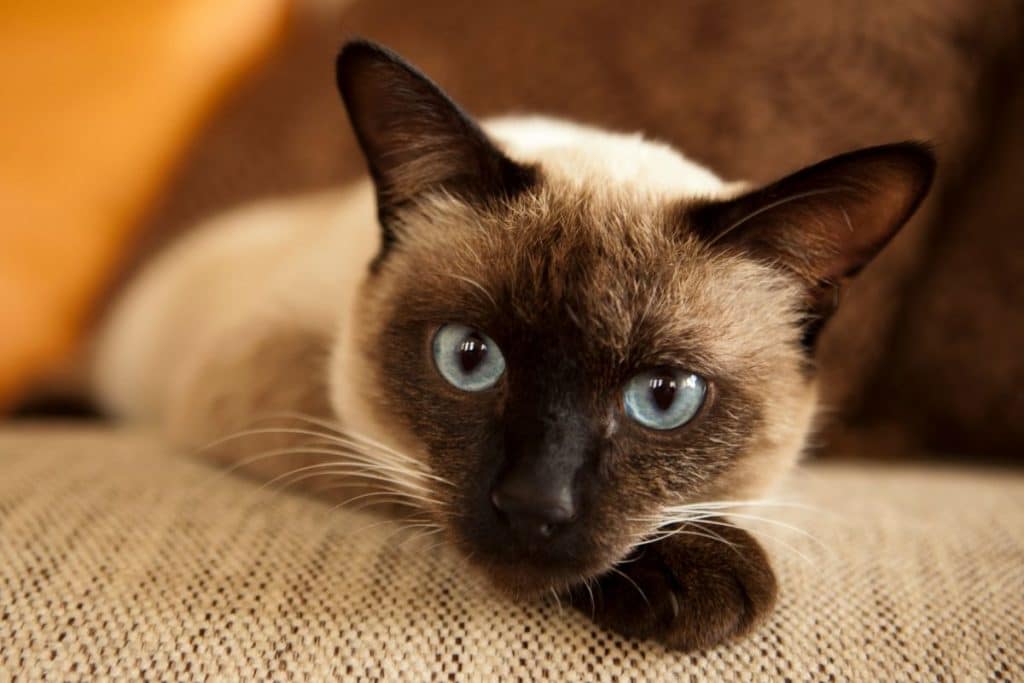Every Siamese cat pet parent would complain about excessive meowing of their pet. In fact, some Siamese cats meow persistently and loudly. Often, this can be a cause of concern for many pet owners. While meowing, precisely meezer is a Siamese cat’s thing, there are several reasons why your Siamese cat may be meowing excessively.
From boredom to craving attention, Siamese cats rely on excessive meowing to communicate with their owners. And while it may sound cute initially, it can quickly turn out to be irritating for you.
If you are looking for ways to reduce the excessive meowing of your Siamese cat, it’s important to figure out the cause of excessive meowing. Once you figure out why your feline is meowing excessively, you can rely on tips, such as taking better care of your pet and spending more time with it to reduce the undesirable behavior of your Siamese cat. Remember, your Siamese cat won’t completely stop meowing. After all, it is one of the ways your feline will continue to communicate with you. But you can train your pet to reduce undesirable behaviors, such as excessive meowing.
In this post, we look at the reasons why your Siamese cat may be meowing excessively, followed by practical tips that will help you reduce excessive meowing of your Siamese cats.
Why Your Siamese Cat May Meow Excessively?
Siamese cats are super energetic and extremely intelligent. They are curious and try to find out more about their environment. Moreover, they love to spend timing with their owners and other family members. But most importantly, Siamese cats love to communicate. Since they are more social than other cat breeds, they are also more vocal about their needs.
So if your Siamese cat is meowing excessively, it isn’t always a sign of danger but know that it is a way of communication. Excessive meowing is an indication that you, as a pet parent, need to look into something that is affecting your Siamese cat. Here are some of the most common reasons why your Siamese cat may be meowing excessively.
Your Siamese Cat Isn’t Well
Siamese cats are vulnerable to health conditions like diabetes, urinary tract infections, etc. They may not show obvious signs and symptoms initially, but your cat may be experiencing them. Hence, various illnesses can also cause your Siamese cat to meow excessively.
To rule out the possibility of a medical condition, you need to keep a close check on your cat’s appetite and overall behavior. In case you notice a significant change in your cat’s appetite, overall energy levels, or avoidance of litter box, make sure you schedule a visit with your vet and figure out the exact cause of excessive meowing.
Your Siamese Cat Isn’t Getting Enough Attention
Siamese cats thrive on human interaction, and they particularly crave their owner’s attention. But when you, as a pet parent, are unable to give your Siamese cat the attention it desires, your pet will resort to excessive meowing. It is one of the ways to communicate that you, as a pet parent, are not giving your Siamese cat the love and attention it needs.
Apart from excessive meowing, your Siamese cat will also resort to other ways to grab your attention. It might come and spend time in your lap even when you are busy or clingy, especially when you leave the house.
Your Siamese Cat Missed Out on Food
Now, this is instinctive, and your Siamese cat will be quite angry if you forget to feed it. Remember, when you bring a Siamese cat home, know that it doesn’t only need breakfast, lunch, and dinner. Your Siamese cat also needs several shorter meals in between. So if your Siamese cat is meowing excessively, it’s a good idea to check your pet’s feeding schedule.
Your Siamese Cat Feels Bored and Lonely
Siamese cats are sociable and affectionate. Moreover, they need human interaction and stimulation to thrive and channelize their energy. But when left alone in the house from 9-5 while you’re at work, it can be quite challenging for your pet to process loneliness and solitude. It is also possible that your pet may also develop separation anxiety as a result.
Hence, if your Siamese cat is meowing excessively as you get back home, maybe it’s trying to tell you “I was bored and lonely all day”.
Your Siamese Cat’s Age
If you are bringing an older Siamese cat home for the first time, you might not know that older cats tend to meow more than younger ones. One possible condition that’s linked to old age is senility. If your Siamese cat is older and is constantly meowing, you should schedule an appointment with your vet so they can rule out the possibility of senility.
Your Siamese Cat May Want to Breed
If your Siamese cat is not neutered, one possible cause of excessive meowing is when your cat wants to breed. When the desire to breed is a cause of excessive meowing, your cat may also show other signs, such as spraying urine all over and being extremely restless.
While there is absolutely nothing, you can do when your cat is meowing for breeding. But it’s just a phase and once it is over, you can speak to your vet about spaying your Siamese cat.
Tips to Reduce Excessive Meowing of Your Siamese Cat
Siamese cats are naturally vocal. They like to communicate, but when the meowing gets excessive, it’s time to do something about it. Here are a few tips that you can try to reduce your Siamese cat’s excessive meowing. Remember that these tips will help reduce excessive meowing, but the behavior will still be there as it is a part of their nature.
Spend Quality Time with Your Siamese Cat
As mentioned earlier, Siamese cats thrive on human interaction. Moreover, they also enjoy the company of children, other cats, and dogs. So if you think that your Siamese cat is excessively meowing because you are not spending enough time with it, maybe you need to look at your daily schedule. It’s always a good idea to spend quality time with your pet every day. Whether you do it before work or once you return home, give your Siamese cat a chance to bond with you, just like you do it with your kids. Make sure you spend 15-20 minutes twice every day with your Siamese cat. You can use it as quiet time with your pet or an opportunity to play with it, so your cat gets mentally alert and bonds with you in a healthier way.
If there are more people at home, you can make sure they too spend some time playing with the cat or simply bonding with it.
Furthermore, know that Siamese cats get along well with other cats and even dogs. So it may be a good idea to have more than one pet at home, so your Siamese cat doesn’t get bored.
Follow a Consistent Feeding Schedule
Another important thing that you must do is to follow a consistent feeding schedule. This helps if your Siamese cat is meowing excessively due to hunger. However, you don’t always have to feed every time your Siamese cat meows. Instead, stick to a feeding schedule and if your cat meows in between, feed it once it gets quiet.
Plan Lots of Playing Opportunities While You Are Away
If you have to leave your Siamese cat at home alone, it is a good idea to plan lots of playing opportunities for your pet. Invest in good-quality toys, such as scratch pads, puzzle-based games, and other toys that provide mental stimulation to your cat. It’s a great way to keep your Siamese cat busy while you are away. Moreover, it also improves your cat’s mental alertness and satisfies its natural curiosity.
Schedule a Visit with Your Vet
While you are trying all of the above tips, let’s not forget that excessive meowing may indicate a disease or health condition. If you notice a change in appetite and energy levels of your pet along with excessive meowing, schedule a visit with your vet. By consulting a vet, it rules out the possibility of health issues and cognitive dysfunction like senility, which is common among older Siamese cats.
Final Words
Siamese cats are unique for several reasons, and being vocal is one of them. The popular Siamese cat meezers may set them apart from other cat breeds. But once it changes into excessive meowing, it’s best to figure out the cause and use the tips mentioned above to reduce it.



